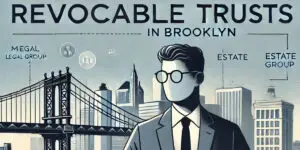As the Covid pandemic proceeds, home lawyers say a Do Not Resuscitate request, or a DNR, could forestall COVID-19 patients seeking life-saving treatment like ventilators or being intubated. Ted Gudorf, a lawyer says individuals need to initially assign a medical services force of lawyer, somebody you trust to settle on clinical choices for you. “In the event that you get COVID 19, I consider most us would need CPR, the greater part of us would need to be intubated, a large portion of us would need to be put on a ventilator, and given phenomenal measures to hold us back from passing on,” said Gudorf.
From that point forward, you need to discuss your desires and what you don’t need, and it should be obviously expressed recorded as a hard copy in your living will. On the off chance that you or a friend or family member have marked a Do Not Resuscitate, a DNR, request, this will keep them from being revived, put on a ventilator or intubated, all usually utilized in the treatment of COVID-19. “That DNR request, we are typically pondering when we are 95-years of age, we have carried on with an incredible life, and we are either terminal or a for all time oblivious,” clarified Gudorf. “We are contemplating that, we are not pondering being 45-years of age and catching COVID-19.”
“Who do you trust to settle on the choices? Do you need the specialist to make them all or do you need a relative included?” asked overseeing lawyer Ted Gudorf. Gudorf says this moment is the opportunity to set up your arrangements, before there’s a possibility you or a friend or family member are hospitalized and can’t settle on their own clinical choices. “So most likely 70% of the nation doesn’t have any of these archives whatsoever,” clarified Gudorf. “The most serious issue we have around here is that no one has a medical services force of lawyer and no one has a living will.” You can track down this load of archives online for nothing however assuming you need to add unique directions, Gudorf prescribes going to see a lawyer for help.
DNR versus Living Will in the Age of COVID-19
Do Not RESUSCITATE (“DNR”)
A DNR request set in one’s clinical record by a specialist advises the clinical staff that cardiopulmonary revival (CPR) ought not be endeavored if the patient quits breathing or experiences a cardiovascular occasion. The request depends on the specialist’s clinical assessment that revival would be pointless or bring about damage or agony to the patient. The DNR is composed by a specialist, not by the patient (in spite of the fact that it is some of the time composed at the patient’s solicitation). Critically, a DNR is explicit with regards to CPR. It doesn’t express that the patient ought not be dealt with. On account of COVID-19, “treatment” incorporates the utilization of a ventilator, so it’s utilization isn’t influenced by a DNR.
Living Will
Living Wills for the most part have two parts, an Advance Directive and Health Care Proxy. Advance Directives are authoritative records endorsed by the individual, containing guidelines and inclinations for clinical consideration in a finish of-life situation. They are frequently depended upon in the event that at least one specialists decide the patient is terminal, seriously and for all time oblivious, and there is no sensible any expectation of recuperation. A Living Will assists one with keeping away from end-of-life enduring and diminishes relatives and companions of the troublesome weight of settling on these choices.
One ought to talk with a senior law or bequest arranging lawyer preceding executing a Living Will. This significant report doesn’t influence the utilization of a ventilator during a COVID-19 emergency except if the ventilator is presently not thought about treatment yet rather a daily existence supporting measure for a terminal patient with a hopeless and non-reversible condition. A Health Care Proxy assigns a specialist to follow up for a patient’s benefit to settle on and implement clinical choices in the occasion the patient can’t give educated assent or settle on choices on their own. For the most part, it is dependent upon the specialist to advocate for the patient and do the desires illustrated in the Advance Directive dependent on current realities and conditions that exist after meeting with the clinical experts.
Find support
In the event that you might want to study the question of estate planning in Queens, any of our home arranging lawyers would be glad to help you.









